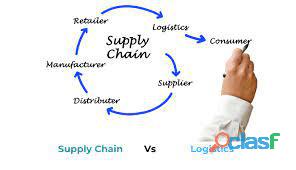1:EARLY CHILDHOOD DEVELOPMENT COURSE IN CHITRAL SWAT IN ABBOTTABAD
Early childhood education (ECE), also known as nursery education, is a branch of education theory that relates to the teaching of children (formally and informally) from birth up to the age of eight.[1] Traditionally, this is up to the equivalent of third grade.[2] ECE is described as an important period in child development.ECE emerged as a field of study during the Enlightenment, particularly in European countries with high literacy rates.[3] It continued to grow through the nineteenth century as universal primary education became a norm in the Western world. In recent years, early childhood education[4] has become a prevalent public policy issue, as funding for preschool and pre-K is debated by municipal, state, and federal lawmakers.[5][6][7] Governing entities are also debating the central focus of early childhood education with debate on developmental appropriate play versus strong academic preparation curriculum in reading, writing, and math.[8] The global priority placed on early childhood education is underscored with targets of the United Nations Sustainable Development Goal 4.
ECE is also a professional designation earned through a post-secondary education program. For example, in Ontario, Canada, the designations ECE (Early Childhood Educator) and RECE (Registered Early Childhood Educator) may only be used by registered members of the College of Early Childhood Educators, which is made up of accredited child care professionals who are held accountable to the College's standards of practice.The Developmental Interaction Approach is based on the theories of Jean Piaget, Erik Erikson, John Dewey, and Lucy Sprague Mitchell. The approach focuses on learning through discovery.[10] Jean Jacques Rousseau recommended that teachers should exploit individual children's interests to make sure each child obtains the information most essential to his personal and individual development.[11] The five developmental domains of childhood development include:[12] To meet those developmental domains, a child has a set of needs that must be met for learning. Maslow's hierarchy of needs showcases the different levels of needs that must be met the chart to the right showcases these needs.[13]
Physical: the way in which a child develops biological and physical functions, including eyesight and motor skills Social: the way in which a child interacts with others[14] Children develop an understanding of their responsibilities and rights as members of families and communities, as well as an ability to relate to and work with others.Emotional: the way in which a child creates emotional connections and develops self-confidence. Emotional connections develop when children relate to other people and share feelings.Studies, such as one by Harvard, have shown how early childhood education programs can prepare children to develop the social and emotional skills they need to succeed and graduate high school. Other benefits of ECE can include earning higher grades and having a lifelong enthusiasm for reading and learning.Early childhood education describes the period of learning that takes place from birth to 8 years old. There are several types of early education programs, including those that are federal, state or privately funded.
EARLY CHILDHOOD EDUCATION PRINCIPLES
Children always come first. ...
Every situation is a learning opportunity. ...
Child development plans build relationships and knowledge.
Parent and educator partnerships embrace the child. ...
Autonomous educators lead to innovation.
Important areas of early childhood development
Social and emotional.
Language/communication.
Movement/physical development.
Cognitive (learning, thinking, problem-solving)
ECE is also a professional designation earned through a post-secondary education program. For example, in Ontario, Canada, the designations ECE (Early Childhood Educator) and RECE (Registered Early Childhood Educator) may only be used by registered members of the College of Early Childhood Educators, which is made up of accredited child care professionals who are held accountable to the College's standards of practice.The Developmental Interaction Approach is based on the theories of Jean Piaget, Erik Erikson, John Dewey, and Lucy Sprague Mitchell. The approach focuses on learning through discovery.[10] Jean Jacques Rousseau recommended that teachers should exploit individual children's interests to make sure each child obtains the information most essential to his personal and individual development.[11] The five developmental domains of childhood development include:[12] To meet those developmental domains, a child has a set of needs that must be met for learning. Maslow's hierarchy of needs showcases the different levels of needs that must be met the chart to the right showcases these needs.[13]
Physical: the way in which a child develops biological and physical functions, including eyesight and motor skills Social: the way in which a child interacts with others[14] Children develop an understanding of their responsibilities and rights as members of families and communities, as well as an ability to relate to and work with others.Emotional: the way in which a child creates emotional connections and develops self-confidence. Emotional connections develop when children relate to other people and share feelings.Studies, such as one by Harvard, have shown how early childhood education programs can prepare children to develop the social and emotional skills they need to succeed and graduate high school. Other benefits of ECE can include earning higher grades and having a lifelong enthusiasm for reading and learning.Early childhood education describes the period of learning that takes place from birth to 8 years old. There are several types of early education programs, including those that are federal, state or privately funded.
EARLY CHILDHOOD EDUCATION PRINCIPLES
Children always come first. ...
Every situation is a learning opportunity. ...
Child development plans build relationships and knowledge.
Parent and educator partnerships embrace the child. ...
Autonomous educators lead to innovation.
Important areas of early childhood development
Social and emotional.
Language/communication.
Movement/physical development.
Cognitive (learning, thinking, problem-solving)
4.00/5
1 reviews




CONTACT




